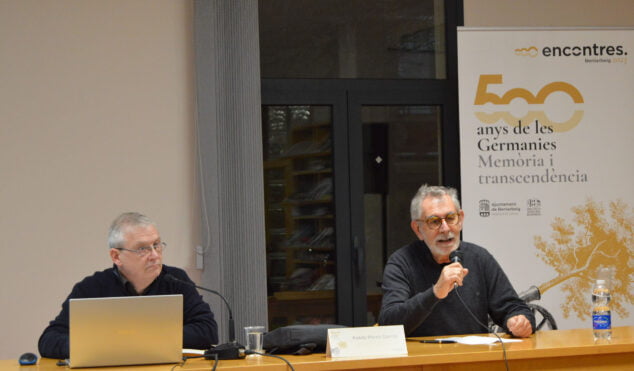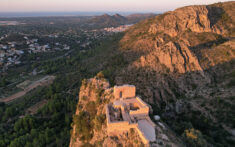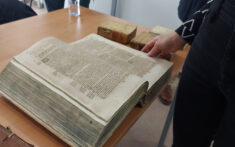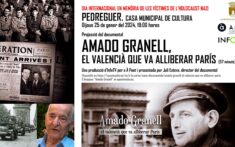Before a large audience, Pablo Pérez Garcia, Professor of Modern History at the University of Valencia, gave the inaugural conference of the Encounters in Beniarbeig dedicated on this occasion to commemorate the 500th anniversary of the War of the Germanías, a capital event in the history of País Valencià which, according to the lamentation of the Beniarbegí writer and presenter of the event, Tomàs Llopis and the speaker himself, "have not received any attention from the Valencian institutions and especially from the government for reasons that are difficult to explain".
After the presentation of the speaker and a summary review of his teaching and research activities, always related to the theme that occupied the night, Professor Pérez Garcia began his speech entitled The Germania de València in the light of the European conflict of the Renaissance highlighting the intention of the word «light» in the title of the conference. "Light illuminates but does not explain," he said. And then, with great communication skills, which immediately attracted the attention of the public, the professor stated that in Europe, at the end of the XNUMXth century and beginning of the XNUMXth, there were approximately twenty episodes similar to the Germanía Valenciana, in some things, yes, and different in others, he clarified.
This conflict was of three types: the first related to the dynastic change and the coming to power of Emperor Charles V, who began the Austrian dynasty in Castile and Aragon, once the Trastámara dynasty had disappeared. A change that crystallized in the war between the Comuneros of Castilla and the Germanías of Valencia and Mallorca. The second type of conflict took place in central Europe and derived from the so-called crisis of the Late Middle Ages. Thirdly, there was a series of conflicts motivated by the popular awareness of the lack of justice, and the need to restore it, both in terms of the equality of individuals before the law and in terms of the right of everyone to participate in the government. .
«It is what the German historian Peter Blickle», affirmed Pérez Garcia, «called the revolt of the "common men", that is to say, of those who, regardless of wealth, had the capacity to govern banned», in this sense he cited the cases of Vicent Peris and Joan Caro who knew how to understand each other on some points and actively participate, each from their own condition and ideology, in defense of the Germanía. It was, then, this capacity to associate, to Germanize for shared interests, what made these types of revolts possible.
Professor Pérez Garcia still highlighted the religious nature of these revolts insofar as it could come ideologically from the millennial tradition, which it provoked in Valencia l'encobertisme or the religious conflict around the Lutheran reform and the consideration of the Bible as the only source of doctrine.
The act concluded with a lively and suggestive colloquium that showed the interest with which the public had followed this inaugural conference of the Encontres a Beniarbeig 2023.
The next session will take place on February 2 and Professor Rafael Narbona will intervene, who will talk about La Germania to the city of Valencia. All the acts begin at 19:30.







